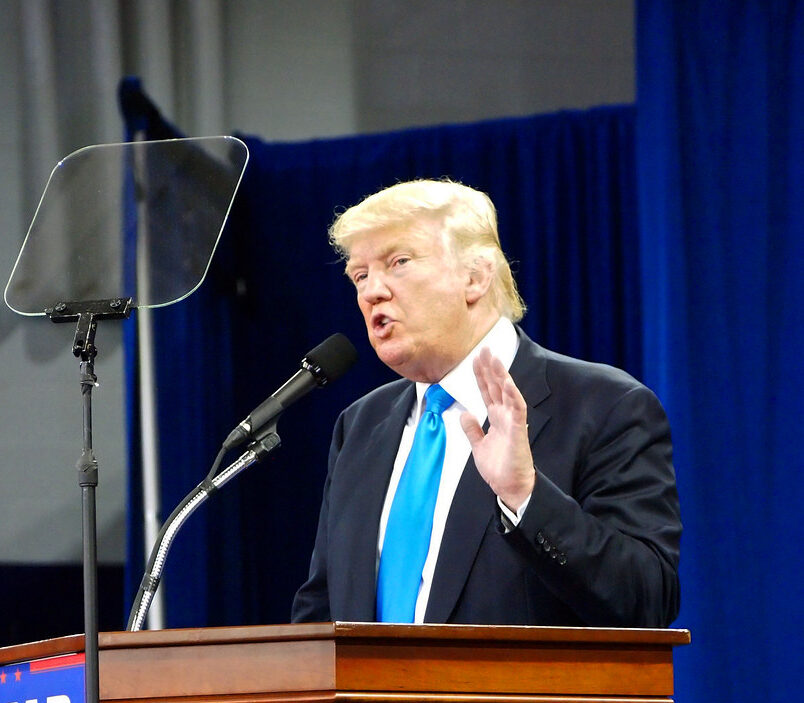Key Takeaways:
- President Trump filed a $15 billion defamation lawsuit against the New York Times, three reporters, and Penguin.
- A judge threw out the case, calling it a way to attack an opponent under legal protection.
- The dismissal shows limits on high-profile legal fights and defamation law at work.
Trump’s Defamation Lawsuit Dismissed by Court
President Trump sued a major newspaper and others for defamation. He asked for $15 billion. He claimed false information hurt his reputation. However, a judge threw out the defamation lawsuit. The judge said Trump misused the court as “a protected platform to rage against an adversary.” Therefore, the case did not meet the law’s standard.
Background of the Defamation Lawsuit
In April, Trump filed his defamation lawsuit. He targeted the New York Times, three of its reporters, and Penguin. He argued that they published stories painting him in a bad light. Trump said these stories cost him money and trust. He also wanted a public apology. Instead of a simple correction, he demanded billions in damages. Soon after, media outlets and legal experts watched the case closely.
Reasons Behind the Defamation Lawsuit Dismissal
First, the judge noted that Trump used the lawsuit to attack. Courts protect people’s right to criticize public figures. Thus, defamation law sets high proof standards for public figures. A public figure must show the defendant acted with “actual malice.” That means the publisher knew the story was false or showed reckless disregard for truth. Here, Trump failed to meet that bar.
Second, the lawsuit mixed complaint with politics. The court said Trump used legal claims to punish an opponent. In fact, the judge wrote that it served more as a speech tool than a real legal fight. Consequently, the court saw no genuine legal basis for the claim.
Finally, the legal filing lacked clear false statements. Trump cited broad statements and opinions. However, defamation law protects opinions. The judge ruled that the filed stories mainly offered subjective takes. Therefore, they fall under protected speech.
What the Court Said in Detail
The judge’s decision explained many key points. First, courts protect open discussion. Next, public debate on politics remains free unless false facts appear. Then, to win a defamation lawsuit, a plaintiff must identify false statements. Also, they must prove the publisher knew about those falsehoods. In Trump’s case, the judge found no evidence of that knowledge. Thus, the dismissal followed quickly.
Court quotes included: “The complaint uses this lawsuit as a protected platform to rage against an adversary.” That strong phrase shows how the judge saw the filing. For example, instead of focusing on factual errors, Trump focused on statements he disliked. This step crossed the line into political conflict rather than law.
Impact of the Dismissal on Future Cases
Because the court dismissed Trump’s defamation lawsuit, others will watch closely. First, public figures may find it harder to sue news outlets. They must now present firmer proof of actual malice. Second, media companies will feel more protected when covering politics. They can report and critique without fear of huge fines. Finally, courts may cite this case in future rulings. It could shape how judges view high-dollar defamation claims.
Moreover, the dismissal highlights legal limits. Filing a massive lawsuit can backfire when the claim lacks substance. Judges will not allow courts to be used for political battles. Therefore, lawyers may become more cautious before launching similar suits.
Defamation Law Explained for Everyone
Defamation law aims to balance two rights. One right is free speech. The other is protection from false harm. For public figures, the law demands higher proof. They must show the publisher had serious doubt about the truth. If they can’t prove that, the case is tossed.
In simple terms, think of defamation like a safety net. It stops people from spreading lies that damage a person’s life. However, for public debates, the net has bigger holes. These holes let opinions and critical statements pass. Thus, news outlets can freely cover public figures without too much fear.
How This Affects Political Coverage
First, reporters will feel relief. They can keep investigating powerful people. They can publish critical stories. They just need to check facts carefully. Second, public figures will know they must prove malice. They need evidence, not just hurt feelings. Third, readers will see that courts guard free speech. At the same time, they protect people from real falsehoods.
Overall, the balance keeps public debate honest and open. Moreover, it stops anyone from using law to bully an opponent.
Key Lessons from This Case
Clarity matters. A lawyer must clearly state which fact is false. Vague complaints lead to quick dismissals.
Proof matters. Public figures must show the defendant knew of the lie.
Intent matters. If the lawsuit feels political, judges will notice.
Balance matters. Courts protect both speech and reputation.
Next Steps for Trump’s Team
Trump can try to rewrite his defamation lawsuit. He needs to add more detail on false statements. He must show actual malice. If he chooses another case, he will face strict scrutiny. Thus, his team must gather strong evidence. Otherwise, the court will toss the case again.
FAQs
What happens after a defamation lawsuit gets dismissed?
The plaintiff may correct the complaint and try again. However, the court can dismiss it again if it lacks proof. The ruling becomes public record. It can influence future cases.
Why do public figures need to prove actual malice?
Defamation law protects free speech, especially on public issues. To avoid chilling debate, it demands clear proof of intent to lie from public figures.
Can anyone sue for defamation?
Yes, but standards differ. Private individuals only need to show negligence. Public figures face a tougher test with the actual malice rule.
How can news outlets avoid defamation claims?
They must check facts, cite reliable sources, and make clear which statements are opinions. Careful editorial review helps prevent mistakes. Source: https://www.nydailynews.com/2025/11/13/trumps-new-york-times-lawsuit-can-expose-him/
